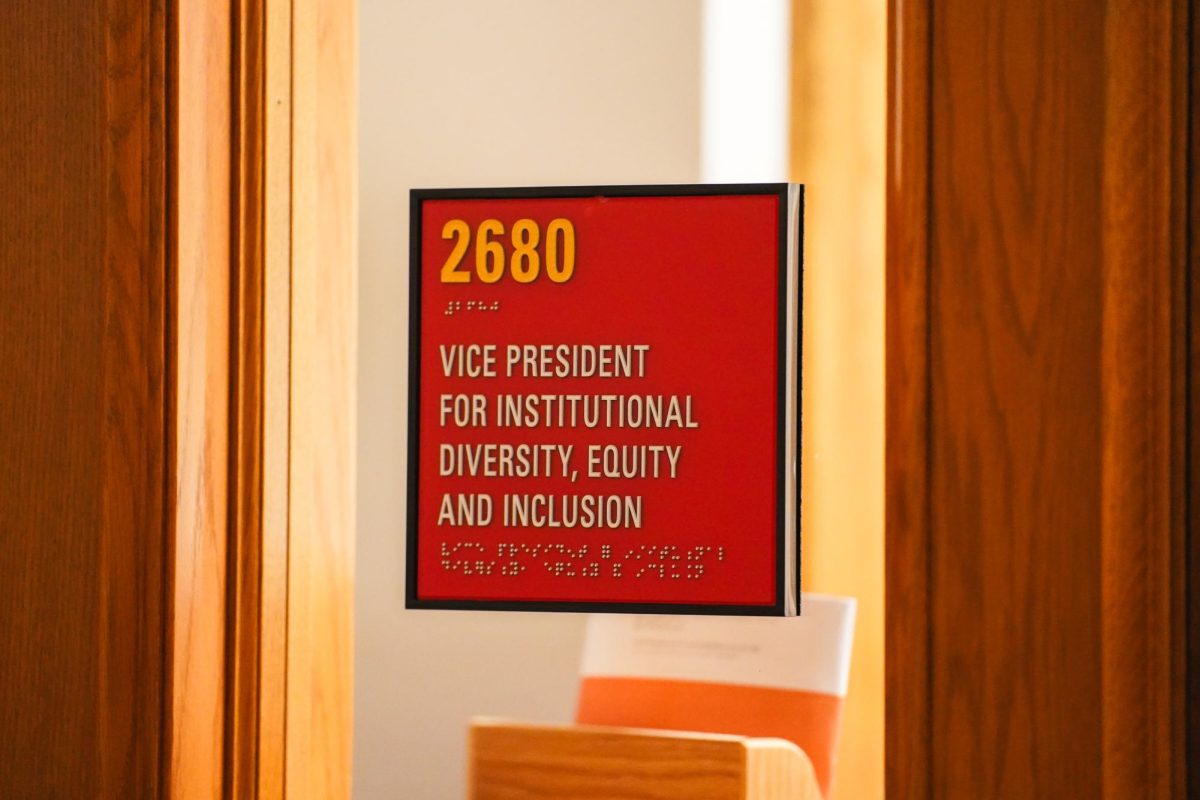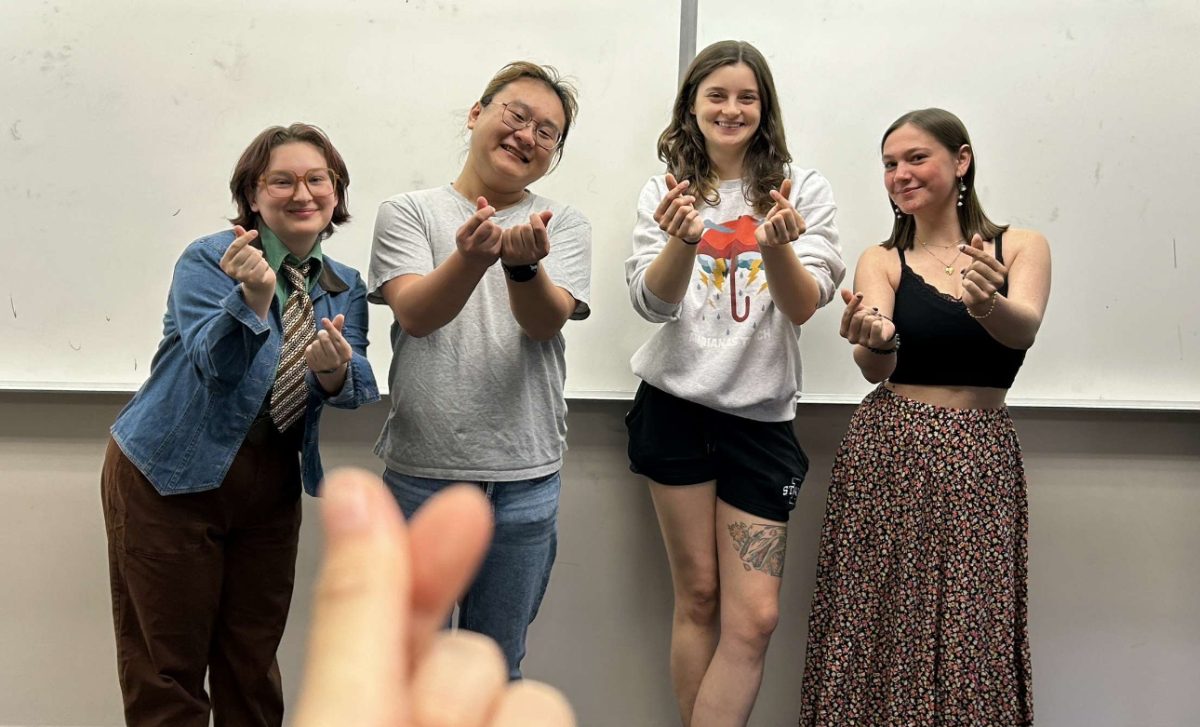The Iowa Board of Regents conducted the study as a result of Iowa Senate File 560, which instructed the regents to conduct a review of DEI programs and initiatives.
The board formed a study group, consisting of three members. The group gathered information about DEI as it relates to academic affairs, human resources and staff governance. The group did this by working with campus leaders and collecting feedback through a public comment form.
Study Group Results
Over half of the 8,425 respondents to the board’s DEI Feedback Form reported themselves as current faculty or staff, with 2,071 being current students. A total of 3,257 respondents reported Iowa State as their primary organizational affiliation.
About 5,500 respondents expressed experience with mandatory programs, training or activities for students and employees addressing DEI at one of the regent universities.
When asked if mandatory DEI programs and training emphasize a particular political agenda or position, just under 3,300 people responded, with about 2,600 responding “no” and 715 responding “yes.”
With just over 5,100 respondents, just over 1,000 answered “yes” and almost 4,150 “no” when asked if, to the best of their knowledge, the additional DEI programs, training and activities emphasize a particular political agenda or position.
Over 3,800 responded that no policy limits were needed limiting DEI programs and activities at Iowa’s public universities, out of over 5,700 respondents. Less than 600 responses were given to “slight need for policy limits,” “moderate need for policy limits,” “very important need for policy limits” and “critical need for policy limits.”
Less than 600 respondents expressed a slight and moderate need for policy limits, with a similar number responding that there is a very important and critical need.
The Iowa Board of Regents’ 65-page report on the regent universities’ DEI programs was released Tuesday with ten recommendations following a pause of new DEI initiatives this spring. The report will be reviewed during the board’s meeting Nov. 16.
The recommendations include restructuring the central, university-wide DEI offices, restricting people from being “compelled to disclose their pronouns,” and eliminating positions that are not “necessary for compliance, accreditation or student and employee support services.”
The recommendations
- Restructure the central, university-wide DEI offices to eliminate any DEI functions that are not necessary for compliance or accreditation. Support services in these offices must be broadly available to all students and/or employees, subject to applicable state or federal eligibility requirements.
- Review all college, department, or unit-level DEI positions to determine whether DEI-specific job responsibilities are necessary for compliance, accreditation or student and employee support services. Any position responsibilities that are not necessary for these purposes shall be adjusted or eliminated. Position and/or working titles shall be reviewed to ensure they appropriately reflect position responsibilities.
- Review the services provided by offices currently supporting diversity or multicultural affairs in other divisions of the university to ensure they are available to all students, subject to applicable state or federal eligibility requirements. Program promotional and informational materials and websites shall be updated to clarify that the mission of these offices is to support success broadly.
- Take reasonable steps to assure the following:
- No employee, student, applicant or campus visitor is required to submit a DEI statement or be evaluated based on participation in DEI initiatives, unless the position is required for DEI-related compliance or accreditation.
- No employee, student, applicant or campus visitor is compelled to disclose their pronouns.
- Develop a board policy prohibiting the consideration of race and other protected class characteristics in admissions that is consistent with the law.
- Initiate a review of DEI-related general education categories and update category names to accurately reflect the array of options students may select from to satisfy these requirements and ensure a breadth of offerings.
- Standardize issuance of annual employee guidance regarding the separation of personal political advocacy from university business and employment activities.
- Explore potential recruitment strategies for advancing diversity of intellectual and philosophical perspective in faculty and staff applicant pools.
- Develop a proposal, including cost, to establish a widespread initiative that includes opportunities for education and research on free speech and civic education.
- Annually, the board office shall issue a reminder to the universities on the requirements of 4.2.I, which governs university websites and other university communications.
Student leaders react
Graduate and Professional Student Senate Vice President Eddie Mahoney, a graduate majoring in computer science, said recommendation 10 might have slightly more impact because the board’s context for it was mentioned in the land acknowledgment, a statement issued at public meetings recognizing the university’s place on ancestral territory.
Iowa State Student Government President Jennifer Holliday, a senior in agricultural studies, was “very nervous” about the release of the report but said she has “a lot more optimism” going forward.
“These recommendations are not as severe to Iowa State specifically as I was thinking they were going to be,” Holliday said. “‘I think we’re very lucky that a lot of our resources are decentralized, so they’re not all underneath the office of DEI.”
An email from the Office of the President to the Iowa State Community said the university will present to the board its plan to accommodate the changes during its April meeting once the report is approved.
“Senior leaders will form and work with an internal advisory group to gather input on how best to respond to the recommendations while focusing on the educational success of all students and providing a welcoming environment for all members of the ISU community,” the email stated.
While Holliday has “more optimism,” she plans to speak before the board Nov. 16 if the board allots her the time necessary.
“If that was to happen, I would never say no to that opportunity and would most definitely have a powerful speech ready for it,” Holliday said.
Holliday said she would not classify the recommendations as fixing a problem, but rather creating a new one.
“I think if we’re not able to evaluate people that are in our classrooms and their ability to ensure that they’re teaching and reaching the broader audience of the students that are in their room, and providing those resources and opportunities for students to learn in unique ways if they have different disabilities or accessibility challenges, we’re going to see a decline in student success here on campus,” Holliday said.
The Board of Regents analysis and recommendation included a review, conducted by the study group, of current operations and organizational structures within the central Office of Diversity, Equity and Inclusion, Compliance and Student Services. The report and recommendations stated the purpose of this review is to better understand which functions of the central office are primarily dedicated to diversity, equity and inclusion.
Current structure of DEI and compliance functions at Iowa State:
The regents’ report stated that the Office of Diversity, Equity and Inclusion advises the overall institutional strategy for advancing the university’s strategic initiatives related to DEI as articulated in the ISU Principles of Community. The Office of Multicultural Student Affairs is separate from the central office of DEI and reports to the vice president of student affairs.
The Office of Diversity, Equity and Inclusion is led by the vice president for diversity, equity and inclusion and reports to the university president.
Sharon Perry-Fantini, the former vice president of diversity, equity and inclusion, left Iowa State Oct. 6 to begin a new position outside of the university. When contacted for comment on Perry-Fantini’s departure, strategic relations and communication referred to an Inside Iowa State article.
The office of diversity, equity and inclusion supports and promotes DEI-related programming, workshops and training across campus and within the larger ISU community. Related programs and organizations include The Center for LGBTQIA++ Student Success, the Margaret Sloss Center for Women and Gender Equity, the Military Affiliated Student Center and Student Accessibility Services.
The report stated that Iowa State and the University of Northern Iowa do not have a DEI competency requirement that is standard for all employment classifications. However, individual departments or units may have DEI-related expectations that could reasonably be interpreted as performance expectations, listing the ISU Department of Geological and Atmospheric Sciences DEI checklist and requests for faculty to annually update faculty pages to include DEI statements and progress as an example.
Angie Hunt, the news service director for strategic relations and communications, issued a statement on behalf of the organizations listed in the report as additional programs that provide support services and resources as well as the Office of Diversity, Equity and Inclusion, the Office of Equal Opportunity and the Office of Multicultural Student Affairs.
“University leaders are reviewing the DEI Study Group’s report and recommendations,” Hunt stated. “As shared in a message to the campus community, once the Board of Regents approves the final report, senior leaders will gather input from an internal advisory group to develop a response to the recommendations.”








